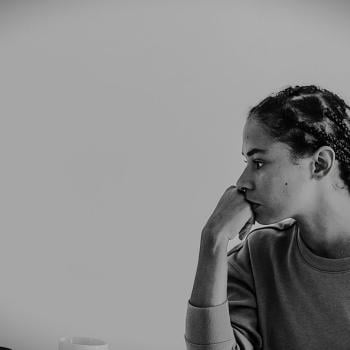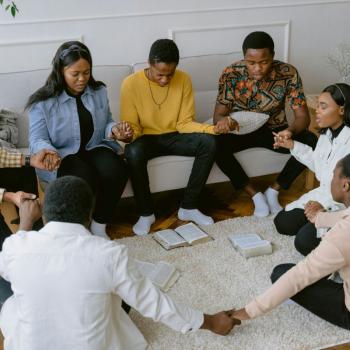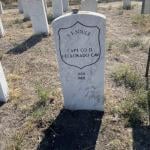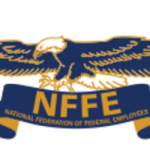This is one pastor’s story of pastoring in a racist church. She’s one of many U.S. clergy who are attacked by their congregations & silenced by their denominations for engaging in anti-racism.
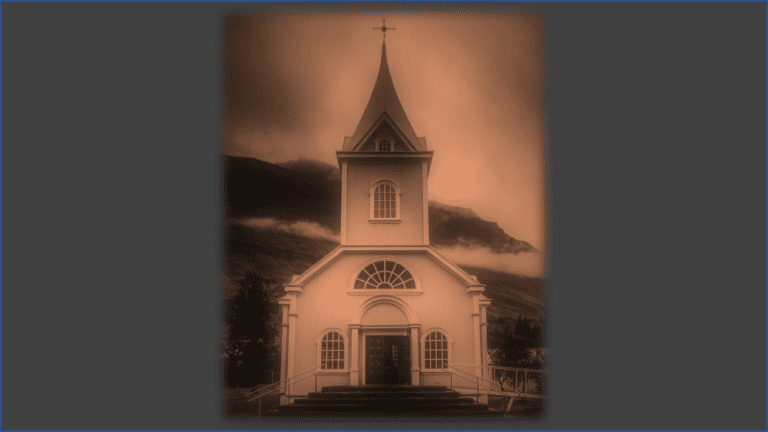
As a seminary professor and co-founder of the Clergy Emergency League, I hear from many pastors who are attacked by their congregations and silenced by their denominations when they address social issues. Preaching against racism is particularly risky because white supremacy runs deep in the DNA of American Christianity (see Robert Jones’ White Too Long: The Legacy of White Supremacy in American Christianity.) The fact is that many clergy pastor in a racist church.
This is one pastor’s story of what she faced from her church and denominational leadership when she dared to speak about racism and engage racial justice in the public square.
We’ll call her Pastor A to protect her anonymity. Pastor A is a white, female clergyperson in her mid-twenties who served a congregation in a southern U.S. state. She was up front with them about her call to address social issues when they first interviewed her. But the demons of racism lurked just below the surface of their initial enthusiasm to embrace her gifts and skills. It didn’t take long until they came out in full force against her. The congregation became a racist crucible.
In this two-part series, you’ll hear Pastor A’s story in her own words. As you read, be aware that this story is not an isolated incident. Clergy committed to social justice are on the front lines of a spiritual battle for the soul of the church, and many of them are reporting the same kinds of treatment from their congregations and denominations.
“Only a year and a half into my first call and they had already broken me.”
 “I need you to preach for me next Sunday. I can’t do this anymore.” I was sitting in the car, sobbing into the phone to a friend and mentor. Weeks of harassment from the church I was serving had taken their toll. I reread the text message I had just received from a church member I had once considered a friend:
“I need you to preach for me next Sunday. I can’t do this anymore.” I was sitting in the car, sobbing into the phone to a friend and mentor. Weeks of harassment from the church I was serving had taken their toll. I reread the text message I had just received from a church member I had once considered a friend:
“You lack the social skills suited for being a pastor of a church…”
“Your pride has proved to be your downfall at our church…”
“All I see is an angry, spoiled millennial who has played the victim her whole life…”
I knew at that moment there was no fixing this.
I had told the church that if they were that unhappy with how I led, they could find a new pastor. They chose to harass me to the point of a mental breakdown instead. Nasty, cruel messages and phone calls. Threats and harassment on Facebook. Lies told to my face. Secret meetings to strategize how to get rid of me. Lies told to the elders. Lies told to our denominational leaders.
I couldn’t help but wonder how I had gotten to this point. Only a year and a half into my first call and they had already broken me.
I was a senior in high school when I first felt a call to ministry.
Even though I was raised in the church, that call came out of left field. During college I would try to run from it until I came to the realization that I would never be content doing anything else with my life. I love the church. I love to study scripture and help others to understand it and love it as I do. I love going out into the world and making it a better place by caring for God’s people. I love inspiring and equipping others to do the same. So when I answered that call to enter ministry, I believed that trying to do anything else would lead to a lifetime of misery, forever feeling unfulfilled by whatever career I might choose.
I entered seminary right after college and graduated in May of 2018. I spent the summer and fall applying to churches, doing interview after interview. Sometime in the fall I was contacted by a church from a small town in a southern state.
The search committee told me they were a shrinking congregation that was looking for someone to bring new and innovative ways of doing ministry.
Although I had been hesitant at first about considering a rural southern church, the more we talked, the more it seemed like this was the church I was looking for. They loved the ways I incorporated art and theatre into ministry. They recognized that they were dying and wanted a pastor who could help them reconnect with the community and find new ways to follow God’s call. Their mission statement was even based on a favorite Bible verse of mine, one that spoke of working for justice as a way of serving God.
October 2018, I travelled to interview with them in person and preach for the search committee. Because I wanted them to know what I believe and what kind of pastor I would be, I chose to preach a sermon on social justice. The scripture I chose was Mark 11:15-18, Jesus turning over the tables in the temple. I talked about how the moneychangers were exploiting the temple system for their own gain and placing an incredible burden on poor Jews. I explained that Jesus’ actions were an important part of his message of liberation for the poor and oppressed. And I concluded by saying that the church is called to do social justice work and that this story is a challenge to the church today. It’s demanding that we ask ourselves if we are allowing systems of injustice to flourish under our watch.
My dad later told me he never expected the church to hire me after hearing that sermon.
But hire me they did.
In fact, the members of the search committee practically begged me to come be their pastor. They later told me that after I finished my sermon, they were whispering to each other, “Can we just vote to hire her now?”
I moved into my new call in January 2019. Twenty-five years old, fresh out of seminary, eager to get started, with no idea what was in store for me. The first few months went well for the most part.
But one day an older member, Emily*, came into my office to ask me about my views on a few topics.
She brought a list with her so she wouldn’t forget anything. The list included some hot button social issues such as abortion and Black Lives Matter. She was particularly concerned because she knew I had been to BLM marches and her son was a police officer. We disagreed on pretty much every topic she brought up, but the conversation was cordial and she left with a smile on her face, thanking me for taking the time to talk.
I wasn’t too concerned until one Sunday not long after that, I noticed Emily had gone home after Sunday school, although her husband Bob* had stayed and attended worship. At first, I thought she just wasn’t feeling well, but then it happened again. Then two others who were part of that same Sunday school class also started leaving before worship. I decided to test the waters one Sunday and approached Emily before she left saying, “I hope you feel up to joining us for worship today.” “We’ll see,” she said with a smile and a shrug. Later I was informed that as soon as I left the room Emily turned to the person next to her and said, “I’m not going to worship with that woman.”
I could see the church starting to divide into two groups: those who supported me, and those who supported Emily and her friends.
I invited a couple of elders to come with me to meet with the two couples. We started with Emily and Bob. They had a long list of complaints about me. Some were things I had preached about (God being female as well as male; it’s not a sin to be gay). Some were beliefs I held but had purposely avoided discussing in church (abortion/pro-choice). But there were also the accusations that had no basis in fact whatsoever. The most notable was when Emily told the elders this:
“I’m concerned that she wants my son dead because she supports Black Lives Matter.”
One of the elders managed to talk her down after that outburst, trying to convince her that I would never want anyone dead no matter who they are. Emily finally conceded, although I could see from the look in her eyes that she hadn’t changed her mind. We tried to explain how divisive their actions were for the church, and one of the elders told them they either needed to come to worship as well as Sunday school, or not come at all. They chose to keep coming. Later we met with the other couple who had been acting the same and the elder gave them the same choice. They chose to stop coming entirely. I found out months later they spread a rumor that I had said they were no longer allowed in church.

In January 2020, the people who had been on the search committee asked to meet with me. When I was first hired, they had offered to remain an informal committee for my first year in order to support me as I learned to navigate being a solo pastor. We hadn’t met since, but they wanted to make good on that promise by meeting now to talk about how the year had gone and see if there was anything I needed help with. However, the meeting quickly devolved into them telling me everything they thought I was doing wrong.
One man, Bruce,* had even prepared a list of complaints he had received from members of congregation (all anonymous of course). The list was long. “You need to smile more.” “We don’t like it when you post about social justice on your personal Facebook page.” “Your sermons about justice make us feel bad about ourselves, we want sermons that make us feel good.” I couldn’t find the words to respond beyond, “I’ll take it into consideration.”
They were demanding that I stop doing the very thing that had convinced them to hire me.
None of my sermons that touched on social justice had been any more radical than the one I preached for the search committee, but suddenly it was a bad thing that I preached like that.
They warned that people would leave if I kept preaching social justice and pressured me to change course. Because this was coming from people who had once been my most ardent supporters, I began to doubt myself. Sermon writing, something I had once loved, became stressful. I was scared to say what I felt called to say, and I felt guilty that I was so scared. On social media I stopped posting anything that might be construed as even slightly controversial and avoided commenting on public posts for fear someone from the church might see it and complain. I felt like I was walking on glass, like even my private life was not mine to control anymore.
Once Covid-19 hit in early 2020, my problems became even worse.
On top of all the other criticisms, suddenly I was receiving constant complaints about the church being closed and how I conducted online worship. People hurled accusations that I wasn’t working hard enough. A few weeks after going virtual, the worship team requested we start recording from home out of concern for their health and safety. However, members demanded that I force them to record at church. I was reaching a breaking point and already starting to question how long I could keep this up.
And then George Floyd was murdered.
See the second part of this two-part series: “The Church’s Racist Code of Silence: One Pastor’s Story.”
Read also:
6 Bible Texts for a Sermon on Racism & Why Your Church Needs to Hear It
What to Do When Parishioners Leave – Because of Politics
What Toni Morrison Taught Me About Racism in Her Book Beloved

The Rev. Dr. Leah D. Schade is the Assistant Professor of Preaching and Worship at Lexington Theological Seminary in Kentucky and ordained in the ELCA. Dr. Schade does not speak for LTS or the ELCA; her opinions are her own. She is the author of Preaching in the Purple Zone: Ministry in the Red-Blue Divide (Rowman & Littlefield, 2019) and Creation-Crisis Preaching: Ecology, Theology, and the Pulpit (Chalice Press, 2015). She is the co-editor of Rooted and Rising: Voices of Courage in a Time of Climate Crisis (Rowman & Littlefield, 2019). Her latest book, co-written with Jerry Sumney is Apocalypse When?: A Guide to Interpreting and Preaching Apocalyptic Texts (Wipf & Stock, 2020).
Twitter: @LeahSchade
Facebook: https://www.facebook.com/LeahDSchade/




